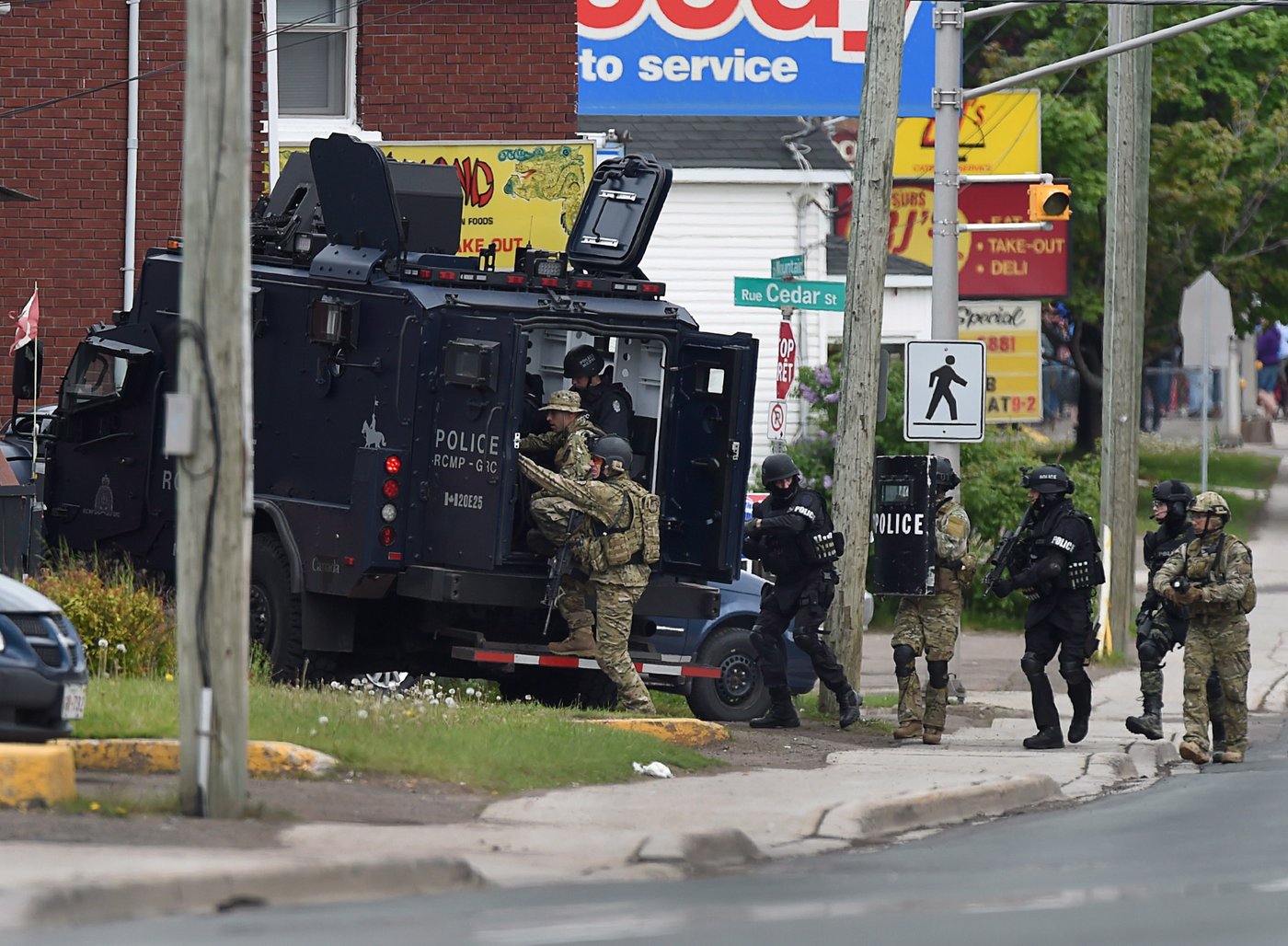New Brunswick’s highest court says it had no choice but to reduce the sentence of Justin Bourque, the man who used a semi-automatic rifle to murder three Mounties in Moncton in 2014.
In its 12-page decision released Thursday, the New Brunswick Court of Appeal said it was “duty-bound” to cut Bourque’s parole ineligibility period to 25 years from the record-setting 75 years imposed by a lower court judge after the triple slaying.
The three-judge appeal panel said its ruling was based on last year’s Supreme Court of Canada decision involving Quebec City mosque shooter Alexandre Bissonnette, which struck down a 2011 federal law that made it possible for judges to extend parole ineligibility periods beyond 25 years for people convicted of multiple murders.
“The Supreme Court’s decision in Bissonnette makes the sentence imposed on Mr. Bourque one that is neither permitted by law nor constitutional,” New Brunswick’s Court of Appeal said. It added that the ruling by the country’s highest court is “binding on us” and governs the outcome of Bourque’s appeal.
The Court of Appeal, however, said all other aspects of his sentence remain unchanged.
In August 2014, Bourque pleaded guilty to three counts of first-degree murder and two counts of attempted murder after targeting RCMP officers on the night of June 4 of that year. He was automatically sentenced to life in prison — a minimum 25-year term.
But the judge at the time decided that the 25-year parole ineligibility period required for each first-degree murder conviction would be applied consecutively, meaning Bourque would have to wait 75 years — and be 99 years old — before he could apply for parole. It was the harshest penalty imposed by a Canadian court since 1962 — the last time state-sanctioned executions were carried out.
However, the Supreme Court in May 2022 decided that consecutive sentences violated the Charter of Rights and Freedoms because they amounted to cruel and unusual punishment for offenders who faced no realistic possibility of being granted parole before they died. The top court also declared the 2011 law was invalid retroactive to when it was enacted.
Bourque appealed his sentence, and on Thursday New Brunswick’s Court of Appeal said it had no choice but to grant the accused’s application. The killer — who was 24 at the time of the murders — should be able to apply for parole when he is 49 years old.
The RCMP, Crown prosecutor Patrick McGuinty and Bourque’s lawyer, David Lutz, did not immediately return a request for comment.
A statement from the National Police Federation, which represents about 20,000 RCMP officers, said it respects the authority of the Supreme Court of Canada “even if we disagree with this specific decision regarding broader public safety needs.”
In a statement, the police union said the federal government “should consider reviewing and modernizing sentencing guidelines in order to reflect modern public safety needs, which polling data from 2022 shows that a majority of Canadians would also support.”
An agreed statement of facts said Bourque’s actions in Moncton were “planned and deliberate” when he used a semi-automatic rifle to kill constables Dave Ross, 32; Fabrice Gevaudan, 45; and Douglas Larche, 40. Constables Eric Dubois and Darlene Goguen were injured in the shootings.
At his sentencing hearing, the court watched a videotaped statement from Bourque, who said he wanted to encourage people to rise up against the “soldiers” that defend federal institutions and protect the rich from the poor. He mused about his strict Roman Catholic upbringing, climate change, evolution, social engineering, class warfare, tyrants and threats posed by the Russians and the Chinese.
The Supreme Court’s May 2022 ruling was in response to an appeal filed by Bissonnette, who was sentenced to life in prison with no chance of parole for 40 years after he pleaded guilty to fatally shooting six people at a Quebec City mosque in 2017.
A judge found the parole ineligibility provision unconstitutional but did not declare it invalid. Quebec’s Court of Appeal subsequently ruled the provision invalid on constitutional grounds. And it said the court must revert to the law as it stood before 2011, meaning parole ineligibility periods are to be served concurrently instead of consecutively, resulting in a total waiting period of 25 years in Bissonnette’s case.
Thursday’s decision said New Brunswick’s attorney general acknowledges the binding effect of Bissonnette. “We are duty-bound to vary the sentences such that the period of parole ineligibility be concurrent terms of 25 years,” it said.
“As explained in Bissonnette, in the current state of the law, Mr. Bourque will be eligible for parole, but eligibility does not mean he has a right to parole.”
This report by The Canadian Press was first published March 2, 2023.
